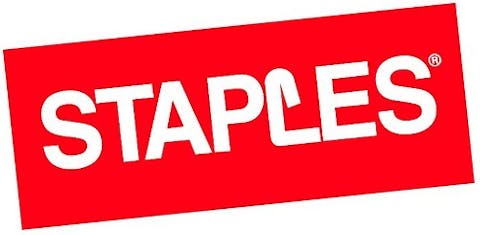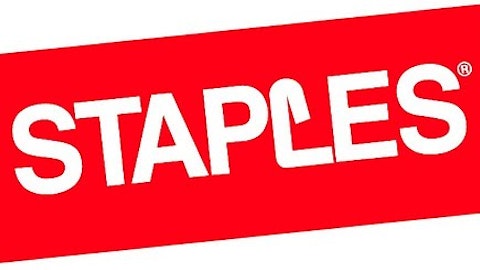Recently, some hard-line retailers have been raising their dividends, which has led to exceptional share price increases. Two of the most important examples are increases in dividends announced by NIKE, Inc. (NYSE:NKE) and Williams-Sonoma, Inc. (NYSE:WSM) in March. Since then both stocks have been up by 12% and 24%, respectively. However, an interesting note for investors is that some retailers are just around the corner from announcing dividend hikes, which has obviously not been factored into the stock prices given that investors have been holding back on the stocks amidst uncertainty.
Why should these companies announce dividend hikes?
Companies with solid recurring free cash flow combined with low (or no) current dividend payout ratios are destined to increase their dividends. Currently, within hard lines, four companies already pay dividends with yields above the Treasury rate (Best Buy Co., Inc. (NYSE:BBY), The Home Depot, Inc. (NYSE:HD), Staples, Inc. (NASDAQ:SPLS), and Williams-Sonoma). However, taking a lesson from Williams-Sonoma, Inc. (NYSE:WSM), whose recent dividend increase was applauded by the market, it may make sense for others to follow suit. Hence, with the 10-year Treasury yielding 2.3%, dividends represent an increasingly attractive way to generate investment return.
Moreover, higher yielding stocks are currently being rewarded with better valuations. Across consumer segments, high dividend-yielding stocks (which are defined as having yields above 2.5%) are currently commanding PEG (Price/Earnings to Growth) multiples 37% higher than low-yield names.
Which companies?
Up until now, I haven’t disclosed which companies are likely to announce dividend hikes. Let’s have a look at four potential players:
The analysis across the consumer-goods sector screens us the best four companies that are possibly expected to raise their dividends in the near future, which will serve as a potential catalyst for stock-price movement.
Staples, Inc. (NASDAQ:SPLS) has been viewed as a favorable company by investors after the merger of Office Max and Office Depot Inc (NYSE:ODP). On May 22, Staples reported another weak quarter, as top-line sluggishness could not make up for pricing declines and investments in infrastructure in contracts.
The company appears to have changed its strategic direction over the past year. It appears to be focusing much more on the top line by reducing pricing, increasing support in contracts and pushing its 5% rewards card to all items. To date, that has not resulted in measurable top-line improvement but it has created measurable margin contraction. It may be a necessary move to be competitive with Amazon.com, Inc. (NASDAQ:AMZN) and other online players, but this quarter showed the steepest decline in both retail and contract margins. Indications on the call are that further pricing reductions are ahead, which will keep pressure on margins.
Two items that will keep Staples, Inc. (NASDAQ:SPLS) as an interesting company at this stage are the benefits that should accrue from the merger and evidence internationally that the expense savings are accelerating. The hope is that market share gains, as consumers appreciate the pricing and service moves, lead to improving comps, which in turn arrests the margin deterioration.
Weak margins for Advance Auto Parts
Similarly, Advance Auto Parts, Inc. (NYSE:AAP) is viewed as the poor house in a very rich do-it-yourself auto neighborhood. That analogy reflects weaker comp and margin results over the last few years. In its recent conference call, the company laid out its investments and strategy to close the gap and more importantly, to significantly improve the company’s commitment to commercial customers. Some of these have been overdue and the Street applauds management’s willingness to make the investments even in a sluggish top-line environment. These investments should drive stronger sales as customer inquiries will be filled more often; however, there might not be any material impact in the near term.




